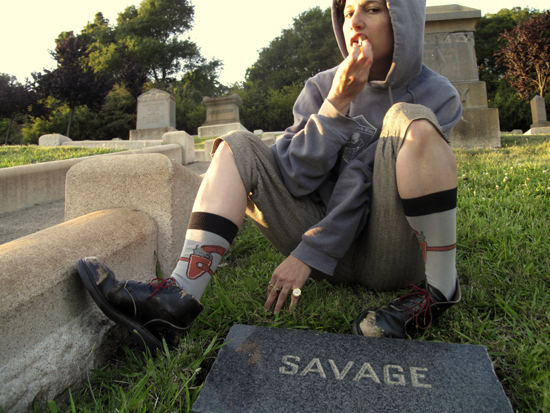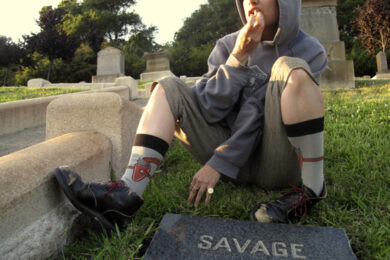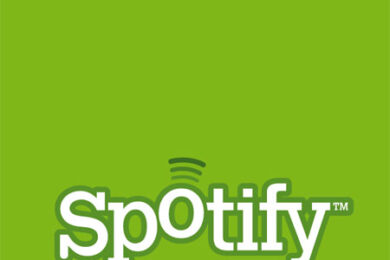Photo by Jennifer Kitner
Carla Bozulich’s new album Boy is, she reckons, a pop record. We’d add that it’s a punk record, a blues record, an avant-rock record and a soul record, too. But it’s pop in the sense of being a record dictated by form but still replete with function, a shot of pure, concentrated Bozulich and a reminder of what can be achieved inside four minutes if an artist understands that brevity just means that every second can be made to count double.
In some ways, Boy feels like a culmination. Within its grooves, it’s just about possible to hear every phase of Bozulich’s by-now imposingly prolific career. There’s the lurch and throb of Ethyl Meatplow; the parched, blasted sprawl of Scarnella; the claustrophobia and catharsis of Evangelista; the doomed balladry of Geraldine Fibbers.
Bozulich’s muse has ranged sufficiently far and wide that looking for common threads can feel reductive. But one trademark is an ability to create music that deconstructs genre without placing its most primal impulses inside stifling quote marks. Bozulich’s best music often sounds like the ghost of something. She communicates essences rather than styles – at their most expansive, Evangelista often sound like rock with its guts ripped out and on display; damaged, raw and revelatory. Any deconstruction serves to intensify her vision rather than diminish it. It helps of course, that Bozulich possesses one of the great rock voices of recent times. Boy finds it richer and more expressive than ever; seductive, furious and sinister in equal measure. In short, a perfect instrument for the creation of pop, but not quite as we know it.
You’ve described Boy as ‘a pop album’. What does pop mean to you?
Carla Bozulich: I set myself a challenge that I would make an album of songs. Because normally when I make an album, I don’t make any rules about it or start with any preconceptions. I just let it unfold in the way it ‘wants to’. And this one, I just made that one rule. Verses, choruses, a bridge, an intrumental section if possible. But when I said that this was a pop album, I meant that for me, it’s a pop album. But the moment I click into it, I try and get the fuck out of the way so that it can create itself. I’m always trying to keep my personal prejudices about what I think should happen out of the way. I know what I want to do on a level that’s deeper than what I rationally think should be done.
Is there any pop music you particularly admire? Were there any touchstones for this album?
CB: [Laughs] No! I wish I could say yes to that! I want to say yes to that so bad. I’m going to make something up for the next interview in case someone asks me that again. We’re all working with our life experiences; with friends, with the books we’ve read, and I just try and inject all that stuff. Everything I’ve done is to do with my ego, which is pretty vast. What makes me strong is all that stuff from outside that I’ve been able to apply to myself.
Your freer, looser, more improvised music feels melodically grounded too. So does this feel like a culmination of all the work you’ve been doing since Evangelista began, applying pop structures to those ideas?
CB: Yes, I’m sure that’s true. It’s funny you said that, because there are a few other things that I have in mind that are absolutely not song-related projects. I kind of let the guitars lay low and put the drums up front on this. But maybe after after this one I’ll make one where I just let the guitars fucking rock. This feels like a little microcosm of so many different projects that I’ve done.
Your work always demands a certain level of emotional intensity and commitment. How does this one compare?
CB: For me, this record is very light. The song ‘Drowned To The Light’ is heavy but it’s not about me. It’s about women and a woman. It’s heavy because I love women and girls and I want us all to be stronger and not have bad shit happen. It’s heavy in that way, but not heavy in the way of me. It’s not me laying on the floor of [Montreal recording studio] Hotel2Tango screaming into a mic with the tape rolling.
Do people assume that you’re writing autobiographically?
CB: They do. But there’s a song on this new album called ‘Gonna Stop Killing’. Maybe that’s the one where people will start to realise that’s probably not me! I mean, they’re all me, but for example on the third Evangelista album In Animal Tongue, there’s a song called ‘Die Alone’. And it’s harsh and it’s recorded in a ‘who gives fuck’ sort of way, and it’s about dying alone from drugs, and it’s just sad. I wrote and recorded it in two hours, and I almost wanted to say sorry for it, but it kind of had to be what it was. I was thinking about Townes Van Zandt and that’s what it is; it’s written for him. I’m singing it in my voice because that’s how it comes out. Whether you write or paint, you have a voice because there’s something you just need to get the fuck out there. I’m not Townes Van Zandt, but I try to express things that I believe to be taking place under surfaces that I’m not able to articulate in any other way.
In terms of influences like blues and country, you seem to capture the essence of things rather than the direct style.
CB: That music is simple. And I love anything that counterbalances my heavy-handed nature. I think that might be what drew me originally to old-style country music. And I’d differentiate and emphasise ‘old-style’. I was getting some noodles yesterday and they were playing ‘new country’. And these guys are singing slick, heavily produced country tracks with Autotune and stuff. It was like a weird R&B version of country lyrics. His lady still threw him out of the house and he still had too much Jack Daniels but it was this weird Autotuned version.
It must be tempting to see what would happen if your sensibility collided with that kind of stuff?
CB: It’s completely fun. Half of my passion for life is just the technology that becomes available. Because you can use it any way you want. I’m not a technophile and I really don’t care what things are called or what they’re meant to be for. Just give it to me and I’ll chew on it. But I’m pretty sure that a lot of these things started out a certain way and people just co-opted them into their sonic machine. With things that are meant to do one certain thing, it’s so much fun to not even bother finding out what you’re meant to do with it. Autotune is really fun. It’s great to deliberately sing wrong and then change it with Autotune.
You travelled widely in the making of this album. How did that feed into what it became?
CB: While you’re everywhere, you’re nowhere. That’s a very traditional rock & roll situation. Rock & roll is about doing the coolest things you could do in your life but still managing to miss somebody and wish you were there. I’ve lived like that, to an extent, since I was 21. I’m just not permanent. I don’t keep an address. I can remember the exact moment when this started, with the first Evangelista album. I remember thinking it may be my best and I needed to give it a chance. And I realised that I was either going to have to take the tours I was being offered, which were extensive, like nine months or something, or I was going to have to get a job. So I gave up my room so I could go on tour. And it was exactly the right thing to do. All of this has been right, and I would never trade it. But I would really love to have a spot to work. The thing about having a studio is about having my gear set up the way I want it, and just getting people together and playing. You can’t have it all, but those are the things that if you could have it all, I would add to my life. And world peace!
Can you tell us about the last line of the album? You sign off with ‘I’ve settled into a life of learning; wouldn’t it be fine if, at check-out time, I was doing what I’m doing right now?’ You obviously see yourself doing this forever.
CB: Who the fuck knows what’s gonna happen? But it seems like a pretty good way to go. I don’t really understand a world where this isn’t what I’m about. In a way, that’s kind of sad. I have a friend, Francesco Guerri, who’s a cellist. He’s not well known at all, but I’d say he’s maybe in the top five or ten musicians I’ve ever played with in terms of intuitive ability. He’s a master of his instrument. And he’s very clear that he can take it or leave it. He works with troubled children, and he feels that’s his main calling. I love that, but at the same time, I can’t relate to it at all. I wish I could and that there was something else I loved like this. But I don’t have anything like that. There’s activism – I really care about social issues. I can talk about feminism and how music relates to that, and I turn into a slobbering madman. But when I’ve written and recorded things that are making a direct political commentary, I’ve ended up throwing them in the trash more often than not. I don’t write well in terms of my style when I’m crossing over into that.
But it’s incredibly hard to write like that without being heavy-handed.
CB: There’s a song called Bells Ring Fire on the last Evangelista album which is a duet with Francesco Guerri on cello, and it’s about one of those guys who we see every day but he’s just invisible – we don’t even notice him. And I’m singing in his voice – people assume its a woman because I’m supposedly a woman. He’s singing about when he lit fire to part of the town, and then people were interested. "All you people running up to me". I do a lot of music like that, music that’s compassionate towards people society would consider to be monsters or misfits on an extreme level. That’s politics as far as I can take it. I don’t even know how to directly relate it except that it stimulates the same kind of emotional result from me that I get when I’m trying to process, for example, the fact that the New Orleans wetlands are disappearing. I’m not going to bore you with what that means, but it’s a giant, horrible, preventable phenomenon that’s not just going to kill millions of birds and alligators, but is also going to cause more natural disasters. But I can’t write a song about alligators.
The album’s full of ambiguity about sex and gender…
CB: The voices in my songs are about 50/50. And a lot of times, they don’t have a gender. And that pretty much describes me. I’ve always really identified with boys and the way that they are at their best, and even the way they are at their worst. I’m more reluctant to say that I have a female side – although obviously it’s true. It reflects this whole thing about me that doesn’t exclude sexuality, but doesn’t include gender identification. And I’m a little bit tired of people assuming that every song I sing is being sung from the perspective of a woman. It bothers the man in me!
When I was in my twenties, I was in a band [Ethyl Meatplow] that had a huge queer audience. And there was no Bikini Kill yet or anything like that, so there were very few bands that had any hard edge that queer kids could get into and dance to and it would be perverse and fun. And a lot of boys were very close friends, and it was mostly the boys who died of AIDS. A friend of mine, John [Napier] died from that band. There’s a live show on YouTube. Look up Ethyl Meatplow, Tulsa, Oklahoma [we could only find this one] and you’ll see what we were like. Tulsa is one of the most conservative, Bible-belt places in the USA, and those boys gave people the confidence to just flip out. Because there was nothing for them in the midwest. I felt like it was time to pay tribute to all those boys. I just decided to channel that. It’s also one of the reasons why this album is like it is. Because heavy music is all very well but, you know, let’s dance!
It’s rare to see confrontation like that in music now.
CB: It didn’t always work. Don’t you think that with a lot of the best music, it can’t always work, because it’s something that’s just being generated then and there? I love that. A lot of Ethyl Meatplow’s music was programmed, so there was no changing that. But we had an incredible drummer who programmed drums and then played along to them live. And back then, people were like ‘fuck you, you’re playing to a recording’. That pissed people off, but it made me really happy. But I really wish that more people had got to hear John Napier, because he was so smart and so great with electronics and so great on guitar.
You’ve had a long career now. Is it harder for more mature female artists to carry on doing what they do in the same way?
CB: It’s funny you should say that, because my label was writing my bio for this album, and they showed it to me and I was like; ‘I love you, but this year you really need to take out the part where it talks about how many years I’ve been doing this, because you think it’s a point of pride, but it’s a death sentence for me’. It should be a good, interesting and awesome thing, but it isn’t. For younger people, who are my audience, they’re the people who are going to listen to music that’s edgy and weird and that you can’t necessarily listen to in front of your kids – that’s the audience that I need. I’m pretty unknown, and if you put somebody like me in front of them, and then you explain my age and the fact that I still sing about sexuality, I mean, fuck yes I do! Of course I do. I feel terrible for anybody who thinks they’re past the point where it’s ok to express that. I think that the phrase; ‘I looked around and I was the oldest person at the gig’ is fucking suicide. Who the fuck cares? This is your fucking life’s blood. Get up there, stand at the front. This is yours!
Carla Bozulich’s Boy is out this week on Constellation




